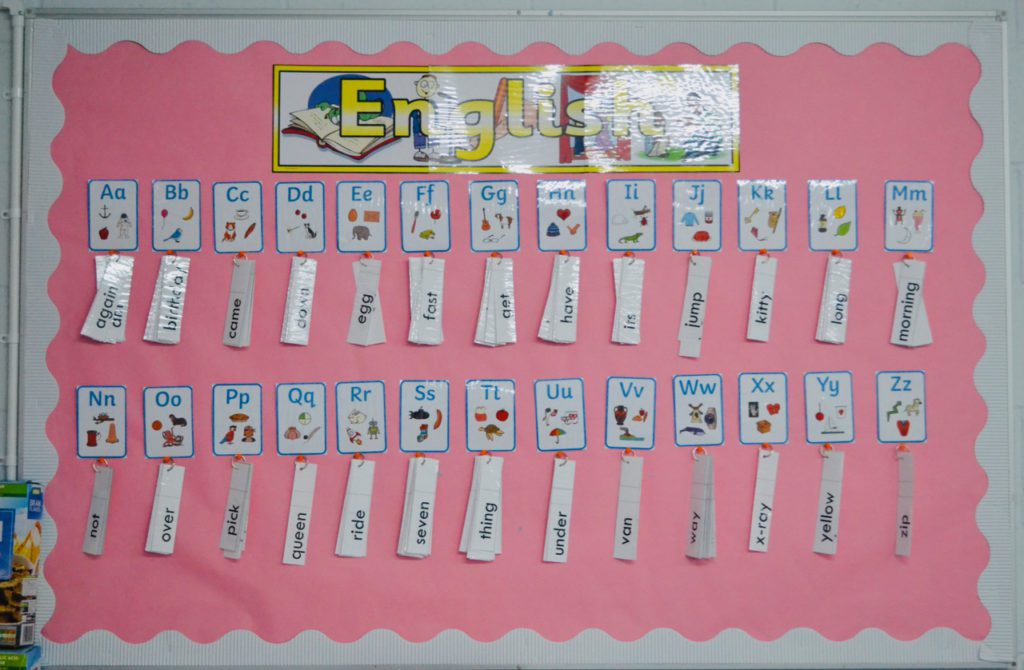Core Words
What are Core Words?
The concept of the “core words” in the English language generally refers to a small set of words that are considered fundamental and essential for communication. These words form the basic building blocks of the language.
The exact number of core words can vary, but it’s commonly suggested that around 200 to 220 core words make up a substantial portion of everyday communication (roughly 80%). These words are often high-frequency words that cover essential concepts and can be used to create simple sentences and convey basic ideas.
How do I teach Core Words?
There are two ways to teach the technical aspects of reading: phonics or the whole word approach. When I trained 30 years ago, it was generally accepted that a mixture of both was best practice. However, in recent times the DfE’s focus has been on synthetic phonics to the exclusion of other methods. Unfortunately, not all children learn to read this way, particularly those with Down’s Syndrome. It is therefore essential that teachers in Special Ed are familiar with both methods. Introducing Core Words is one way to do this. These words are sometimes known as Dolch Sight Words and the website: DolchSightWords.org explains what these are as well as providing free lists of the words.
They say: “The Dolch Word List is a list of commonly used English words that was originally compiled by Edward William Dolch, PhD and published in his 1948 book, “Problems in Reading”. Edward Dolch compiled this list based on children’s books of the period, and selected 220 “service words” which children need to recognize in order to achieve reading fluency. Dolch excluded nouns from his main list, but did compile a separate 95-word list of nouns(opens in new tab).
Many of the 220 words in the Dolch list cannot be “sounded out”, and hence must be learned by sight. Hence the list is often referred to as “Dolch Sight Word List(opens in new tab)“, and the words on it, as “Dolch Sight Words”.”
These ‘core words’ then, are not the same as the common exception words like ‘are’, ‘you’, ‘some’, ‘house’ or ‘they’, that do not comply with phonic rules but they are high frequency words in the sense that they occur most often in any text. Some can be sounded out using phonics and some need to be learnt as whole words.
Zoe Tillotson, CENMAC Advisory Teacher
Classroom Word Wall Display
I suggest starting by creating a Word Wall display. There are many examples on the internet or take inspiration from the Charlton Park Academy photos below. Dolch, Sight or Core Words are graded according to difficulty. Select a few appropriate words to introduce to a class or group each week. Add them to the Word Wall. Use flash cards to explicitly teach these words. Reinforce this learning with some of the individual, pair and/or group activities listed below:
- Play Core Word bingo
- Play ‘pairs’ using a double set of Core Words
- Do a word search for each set of Core Words
- Sort Flash Cards of Core Word sets into alphabetical order (Lay Flash Cards on a table and ask students: ‘Give me the word that says . . .’)
- Give students a multiple-choice strip with three similarly spelt words and ask students to pick out the Core Word from the set
- Use Core Words in Clicker 7 and ask students to write simple sentences using the ‘word/words of the week’
- Make three sets of Flash Cards for one Core Word list and use them to play Happy Families
- Give students a cloze activity with one or more core words missing. Provide students with the missing word [after the text] and get them to insert the correct word in the appropriate space.
- Alternatively, give students a text containing focus key words and ask them to locate and delete/highlight these words.
- Type Core Word adjectives into a digital visual thesaurus.

Core word teaching strategies
In this useful blog from Assistive Ware strategies for teaching core words are explored.
Useful Links
________________________________________
www.commtap.org [Search ‘high frequency words’]




